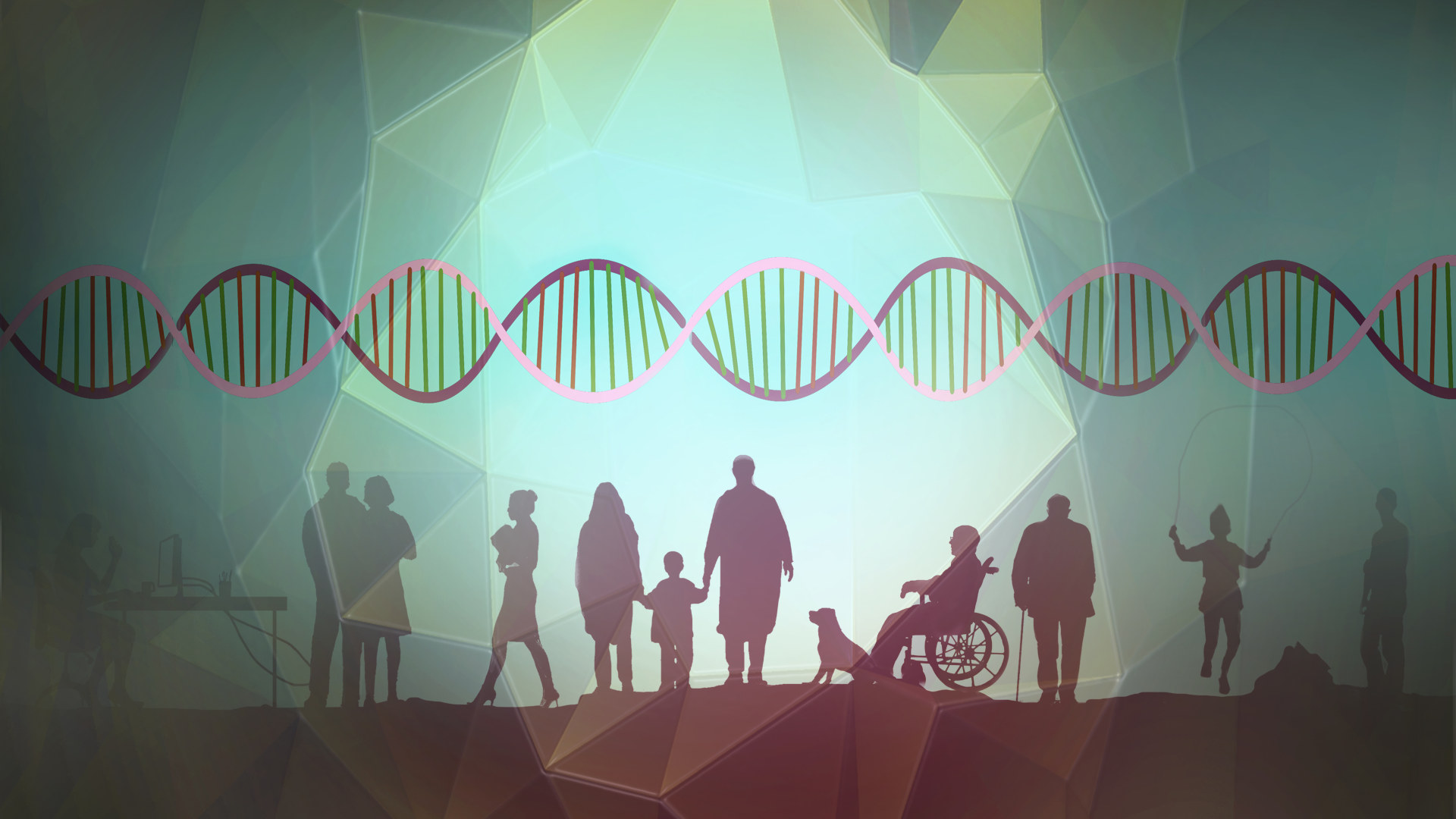For anyone familiar with the history of eugenics, the mention of research into the genomics of an outcome like educational attainment can inspire dread. And for anyone who knows that the 18-year-old white supremacist who murdered 10 Black people in a Buffalo supermarket cited a paper on the subject in his disturbing manifesto, such research can inspire outrage. Indeed, one might be so full of dread or outrage as to propose banning such research.
I sympathize with that impulse, and I want to push back against it. While it’s important to understand the real risks that come with research on genetic differences and social outcomes — particularly the risk of bad actors distorting results — the urge to ban such research, or to deny that it has any scientific merit or potential for social benefit, is unhelpful.
If we better understood what genomics research can — and cannot — tell us about human traits and outcomes, even ones as complex as educational attainment, we might feel less dread and outrage. We need to learn to expect, and even affirm, the fact that, although genetic differences alone do not determine complex traits or outcomes, they are one piece of a staggeringly complicated story about what makes each of us unique.
As a long-time ally of the disability justice movement, I learned the exhortation to “expect difference” — that is, to expect human capacities and behaviors to be different, while simultaneously demanding recognition of the ways in which humans are the same. To borrow from the feminist philosopher and disability theorist Eva Feder Kittay, insofar as each of us is “some mother’s child,” we are all of equal moral worth.
And as a scholar who has long worked on the ethics of genomics research, and who has co-authored a new report on genomics, looking specifically at behavioral and social outcomes, I have come to think it would be helpful to bring the exhortation to “expect difference” into the public conversation about such research.
At this point, it’s well-known that genetic differences are associated with differences in medical phenotypes — meaning any trait or outcome that can be observed or measured. That phrase “associated with” can obscure the depths of our ignorance regarding which genetic variants are making a difference, much less how they are making a difference. But the basic idea that genetic differences can affect the likelihood someone might develop cancer, for example, is hardly news. We also know that genetic differences have something to do with “behavioral phenotypes,” like how sunny or gloomy someone’s disposition is, or how patient or distractable one is, or even how slowly or quickly one processes cognitive information or emotional cues.
This recognition that genetic differences have something to do both with medical diseases and human behaviors is a positive sign that we are getting over the idea that our bodies and minds are separate entities, with “medical phenotypes” anchored in our bodies and “behavioral phenotypes” anchored in our minds. Fortunately, we increasingly recognize the inextricable entwinement of “body” and “mind,” or, to use the language of critical disability studies scholars such as Margaret Price, we increasingly recognize ourselves as “bodyminds.”
If success in school is at least partly a function of various behaviors, it should not be surprising that the “social phenotype” that is educational attainment — defined as the number of years of school one has completed — can also be associated with genetic differences. To say that genetic differences are “associated with” differences in educational attainment is absolutely not to say that genes alone determine those outcomes. Indeed, the researchers who have done the four major studies on the genomics of educational attainment have worked hard to refute genetic determinism and to emphasize that myriad other factors influence it including: discrimination; air, water, and food quality; housing access; pedagogical methods; and national education policies.
The relatively new tool that has opened up the study of social phenotypes, and advanced the study of medical and behavioral phenotypes, is called a “polygenic index,” or PGI. As “poly” indicates, we are no longer in the world of single genes causing rare disorders. Rather we are talking about many — at least thousands of — genetic variants that correlate with a complex phenotype.
To create a PGI, researchers first conduct what’s called a genome-wide association study, which detects the strength of the correlations between genetic variants and the phenotype of interest. The correlation between any single variant and trait or outcome will be tiny and of no interest by itself. But the sum of those correlations can be of great interest to social science and health researchers. And that’s what a PGI is: The sum of the weighted correlations between genetic variants and a phenotype, whether heart disease, distractibility, or educational attainment.
To detect true genomic signals and to reduce background genetic noise, researchers conduct these types of studies on what they refer to as “genetic ancestral populations.” Whatever PGIs are created in one population cannot legitimately be used to compare it and another. Because the majority of samples in the major biobanks today are from people of European ancestry, most PGIs — including the ones on educational attainment — are based on people of European ancestry.
The most recent and largest educational attainment study reported that approximately 14 percent of the total observed variation in educational attainment was associated with genetic variation. This finding might not seem terribly interesting to people who don’t do social science research. But to people who do, it is. For perspective, an important non-genetic variable — combined parents’ educational attainment — accounts for a comparable amount of the total variation: 19 percent.
Social scientists hope that if they can better understand the myriad variables — genetic and non-genetic — that contribute to various outcomes, not only will their basic research become stronger, but they will become better at recommending more effective social policies. Moreover, these researchers have demonstrated that if they add the PGI for the social phenotype that is educational attainment to the PGI for a medical phenotype such as heart disease, they can better predict an individual’s risk of heart disease than if they use the medical phenotype alone.
I would be the last person to suggest that genetics is the first place to look to improve social or health policies. As someone who worries about what the new report calls “genetic distractionism”— the potential for genetics to distract us from more effective strategies — I have argued against that suggestion.
But I see no evidence that the genetics train is going back to the station nor, given the potential benefits, should we wish it would. Rather, as genetics research moves forward, we need to promote genetic literacy. I believe we really can come to recognize that genetic differences have something to do with why we appear and behave differently — without succumbing to genetic determinism, much less to the puerile fantasy that some human beings are inherently superior to others.
For all of us, scholars and laypeople alike, the challenge is to learn how to give genes their due, but not more.
If we can come to expect that genetic differences have something to do with virtually all human phenotypes, we may feel less dread or outrage when someone suggests that genetic differences can have something to do with an outcome as complex as educational attainment. To see that our society is, or at least that we who identify as progressives are, already moving in that direction, just consider the extent to which we recognize the neurodiversity movement, the fat acceptance movement, and the movement to advance the rights of people who identify as LGBTQAI+.
As the pioneering disability theorist Rosemarie Garland-Thomson might put it, human beings can flourish in all sorts of bodyminds — as long as adequate social supports are in place. The bodymind we were thrown into the world with should have nothing to do with our rights as citizens or with the respect and care we deserve as people.
The traits we exhibit — which have something to do with the genetic differences among us — have nothing to do with the way in which we are fundamentally the same.
Erik Parens is a senior research scholar at The Hastings Center, a bioethics research institute in Garrison, NY, and co-lead author of “Wrestling with Social and Behavioral Genomics: Risks, Potential Benefits, and Ethical Responsibility.”












Comments are automatically closed one year after article publication. Archived comments are below.
Nice article, well balanced. I agree with the sentiment, and I wish neuroscientists and geneticists would do a better job of identifying the specific gene variants, and resulting differences in brain connectivity. Or perhaps we’re looking in the wrong place, and actually non-coding DNA acts like microcode to bootstrap the activity of individualistic, goal-oriented, self-optimizing neural agents.
A lot of this research has been pushed by Kathryn Paige Harden in her book “The Genetic Lottery”. I read the whole book, and found the research completely pointless. It tries to say genetics is important and that genetics is not important in the same sentence. This article tries to do the same.
If we admit that 14% of educational achievement is affected by genes, then what is wrong with saying that one person is 14% genetically superior to another person in education? If you say that no one is genetically superior, then that 14% has no meaning. Worse, you are saying that the 14% is just a tendency and can be overcome and so on. I other words, that 14% doesn’t matter much. And neither does this line of research, then.
That is the problem with this field of study. It will inevitably lead to eugenics. Everyone admits that genetics can be overridden by many different factors and yet we continue to pursue these studies with the naive expectation that people can thread the needle between ‘predisposition’ and ‘eugenics’. It is a complete waste of money to do research that says that genetics influences education, and then in the the same breathless sentence try to insist that “other factors” can override it. If other factors override it, why are you wasting research money on something that cannot be changed?
Eminently sensible. The interaction of genes and environment to produce traits is staggeringly complex, indeed. Our increased knowledge of genetics has led to valuable medical advances. The perils exist as well. It’s not what we research, but what we do with the knowledge that matters.